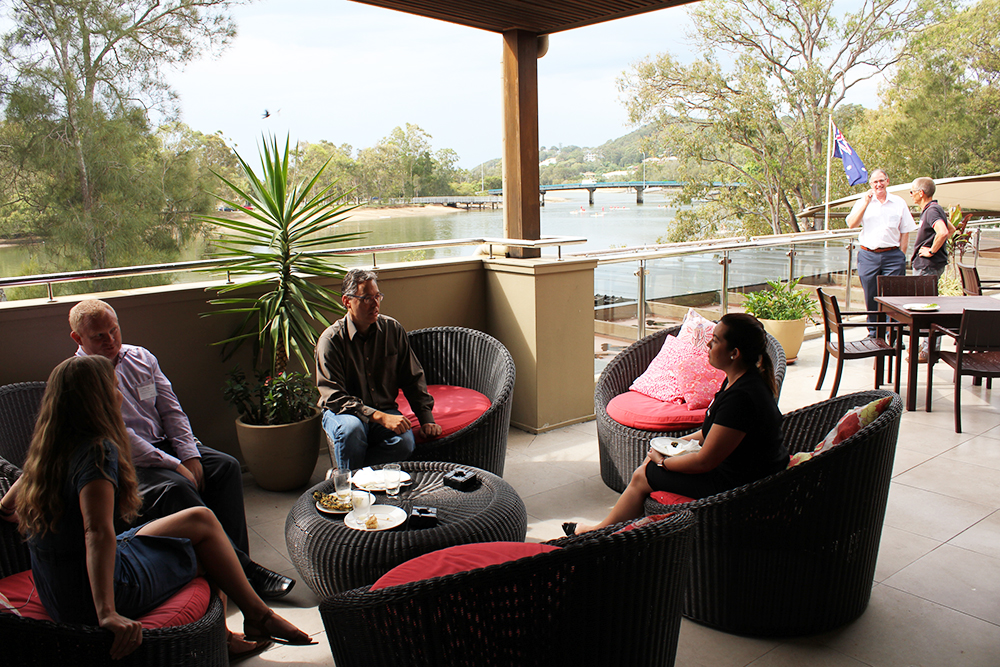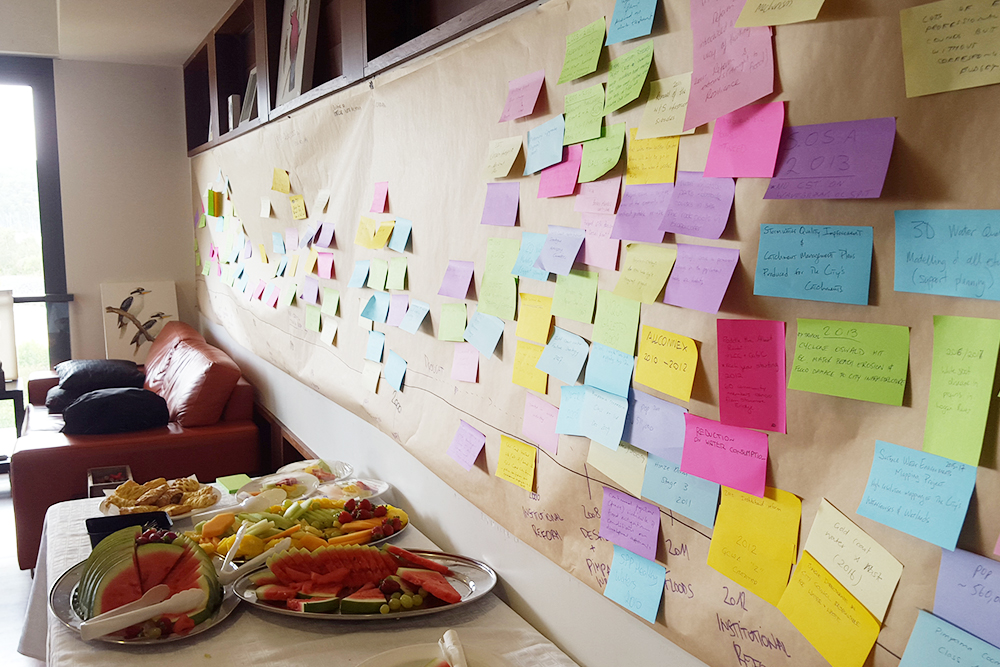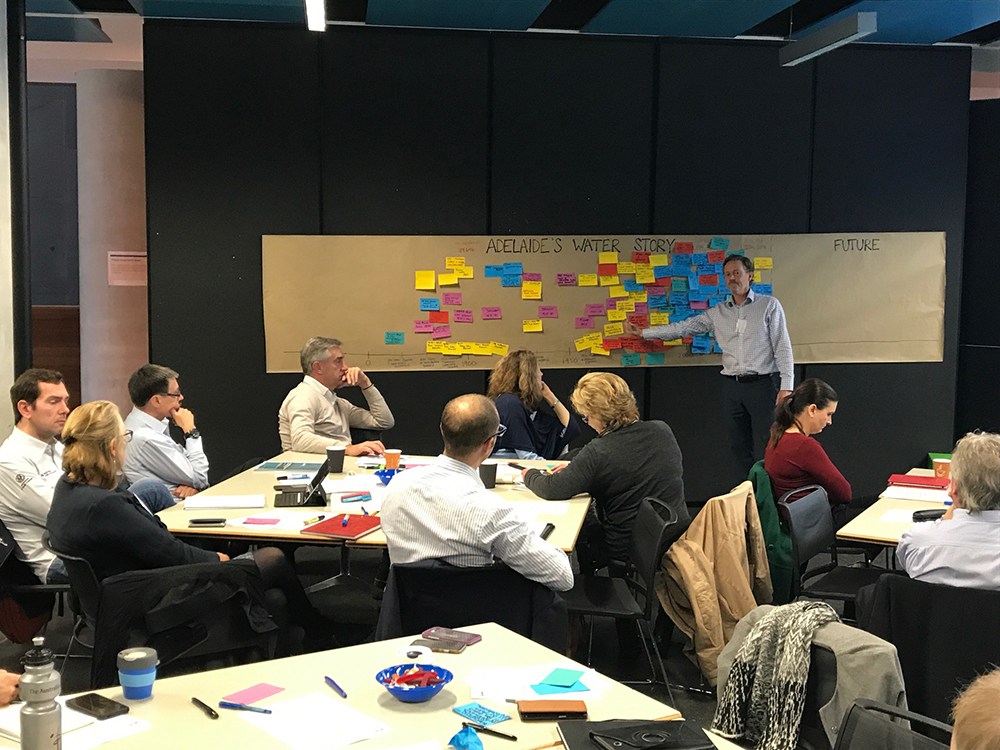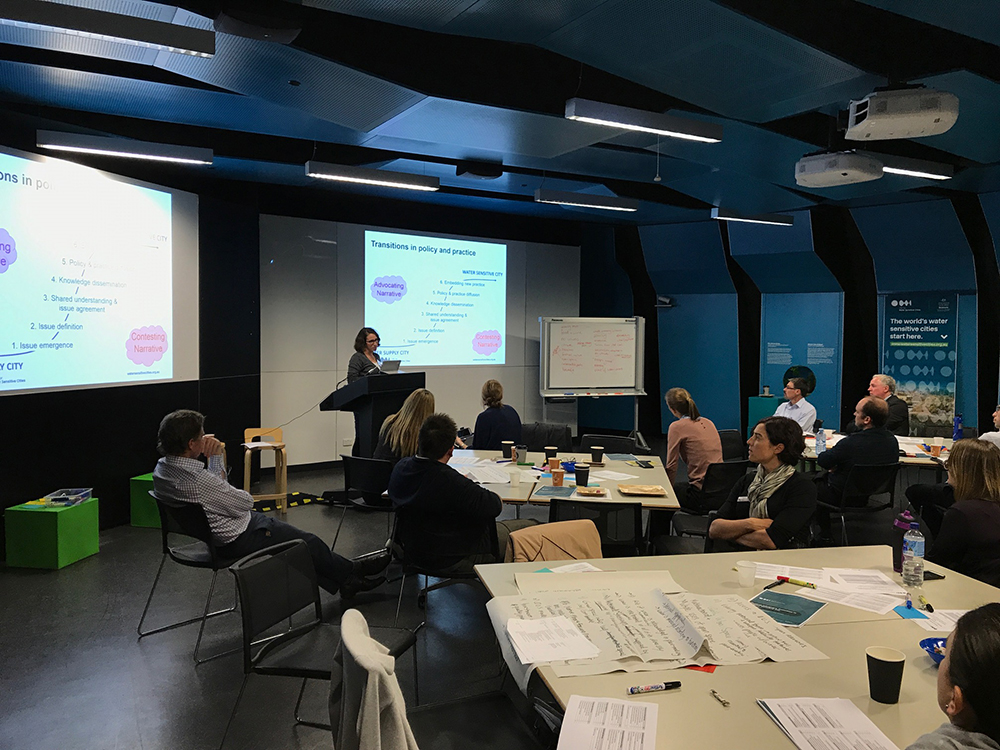Workshops delivering shared water sensitive visions in Adelaide and the Gold Coast
Bringing together diverse perspectives is both challenging and crucial to how cities define their own Water Sensitive City (WSC) vision – and to successful transition strategies for realising that vision.
Workshops enabled by the CRC for Water Sensitive Cities (CRCWSC) are picking up steam in bridging the link: they make a clear, unique contribution to how a city or town can draw together the knowledge and tools it needs – a factor captured by Integrated Research Project 1: Water sensitive transition strategies and implementation plans.
Much of the value of the workshop process is in bringing people together, creating space for open conversations and connection, and a platform in which participants can develop the more integrated approach to water management needed for a water sensitive future.
Those benefits are taking shape in two quite different cities.


Over 6 months, workshop participants have worked to understand current context within the Gold Coast and benchmark its progress against other cities, using the WSC Index tool. By considering past narratives shaping the city and future drivers of change, participants identified a 50 year vision for a Water Sensitive Gold Coast, and sketched out a supporting narrative and strategy that included priority objectives and key actions to guide the transition to a water Sensitive future.
Especially valuable was the capacity to develop a shared understanding of aspirations, issues, and opportunities for accelerating the Gold Coast’s Water Sensitive City transition; the workshop process created a collaborative forum for a broad range of stakeholders including the City of Gold Coast Council, Seqwater, the International WaterCentre, the University of Queensland’s Global Change Institute, Griffith University, Healthy Land and Water, State Government, the Gold Coast Catchment Association, community and local Indigenous representatives.
Over in the south, the tailored nature of the workshop process has been capturing insights from around 30 stakeholders across Adelaide’s water, planning, and development sectors, forming a plan for that city’s transition into water sensitive practice and design.


Adelaide is characterised by the challenges of hot, dry extremes in climate. Workshops in May 2017 have again begun by using the CRCWSC’s WSC Index to benchmark this city’s water sensitive performance, and they have helped to develop the city’s water story and a vision of Adelaide as a future WSC.
Illustrating the participation and ownership fostered in workshops, outputs in Adelaide identified that in the face of future uncertainties like climate change, a growing and ageing population, and increased infill development, planning and practice will need to adopt a more water sensitive approach to ensure that the city remains liveable in the future. Values identified as important to Adelaide living – and which need to be protected and enhanced in a water sensitive future – included beaches and coastline, festival culture, little crowding, liveability, open space and parks, affordability, and close access to nature.
In July, a third and final workshop will expand the vision, adding detail and nuance. It will also focus on identifying the priority areas of focus for Adelaide to progress its transition, identifying high level strategies and actions.
The workshops also have other benefits, including an aim to catalyse a network of motivated champions dedicated to working collaboratively towards their common vision.